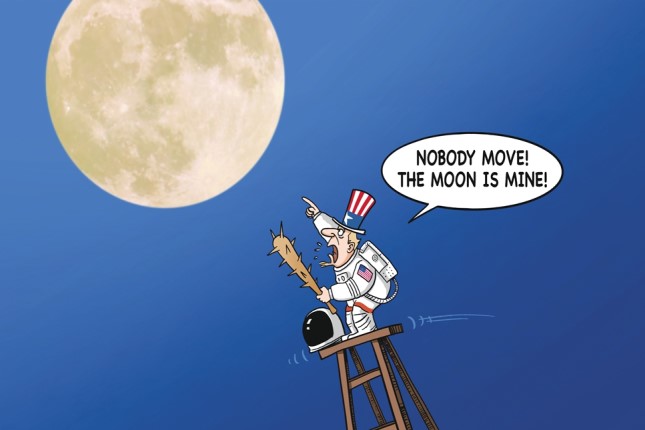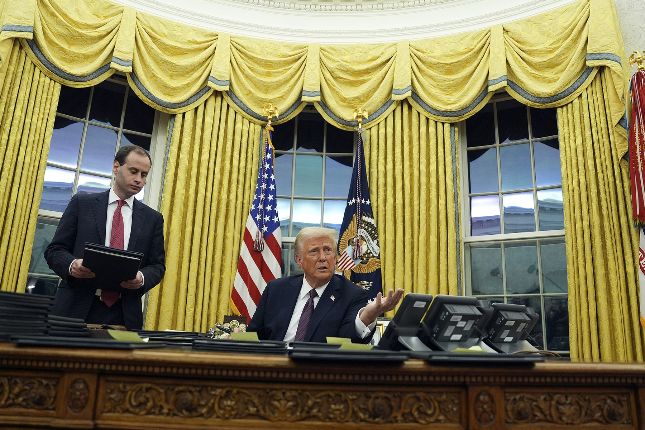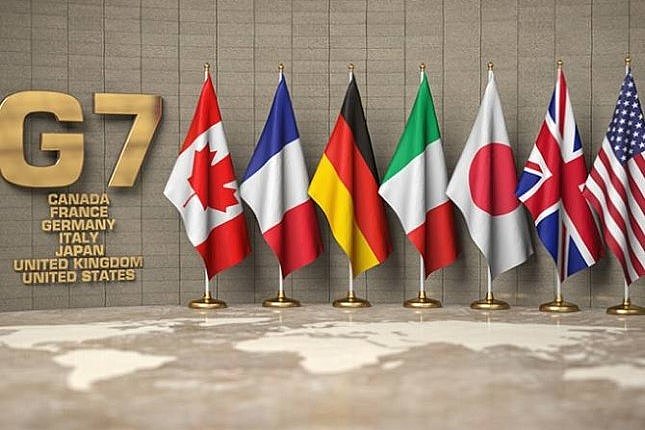The US and its allies should win the 21st century "space race" and lead a "rules-based international order" there before China creates its own "undesirable norms."
In plain language, this statement suggests that after the US, along with its allied nations, has used the banner of the so-called "rule-based international order" to engage in geopolitical efforts to contain China on Earth, they now want to apply the same tactics in outer space. They view the moon as the first "arena" for competition among nations beyond Earth. From this perspective, the true purpose of the US "return to the moon" plan is far from pure. It goes against the universal human desire to explore and utilize outer space for peaceful purposes. The extension of US geopolitical strategies from "land" to "space" is not just a significant escalation in competition but, in a sense, a step backward.
The US' "return to the moon" plan has just experienced two setbacks. First, the Peregrine lunar lander failed to soft land on the moon due to a reported propulsion system problem. On the same day, the United States National Aeronautics and Space Administration (NASA) announced a one-year delay for the planned manned lunar orbit mission Artemis II and the planned manned moon landing Artemis III respectively, citing safety concerns with the existing spacecraft.
Certainly, no one should underestimate US aerospace capabilities due to these setbacks. Aerospace technology represents the culmination of some of the most advanced human achievements, and crewed spaceflight is among the most challenging aspects of aerospace technology. Experiencing setbacks or even failures is inevitable. However, the current anxiety and sense of urgency displayed by the US due to these setbacks are abnormal and unhealthy.
It is not driven by technological thinking and logic, but rather geopolitical thinking and logic, particularly that of a "new cold war." According to this line of thinking, outer space, including the moon, has become a strategic target for competition between the US and China. Should the US fall behind, China would seize the opportunity and emerge victorious in this "important space race." Consequently, space exploration, an area that greatly needs international cooperation, has unfortunately transformed into a zero-sum game.
The thinking of geopolitical competition with China deeply influences Washington politicians. Bill Nelson, administrator of NASA, warned moon's south pole may become "another South China Sea" in August of last year. As early as 2011, the US Congress passed the Wolf Amendment, which prohibits NASA from cooperating with Chinese government agencies without explicit authorization from the Federal Bureau of Investigation and the US Congress. In contrast, China has never had any document, regulation, or provision restricting cooperation with the US. In October last year, China even announced that lunar samples brought to Earth by China's Chang'e 5 mission would be open for inter-national applications. The facts clearly show who stands on the side of openness in space exploration and who stands on the side of closure.
The US possesses the world's most advanced aerospace technology and has achieved great accomplishments in space exploration. People around the world, including the Chinese, are happy to see representatives of humanity delve deeper into outer space, whether they are Americans or people from other countries. However, the US has become so narrow-minded that it not only undermines confidence in its ability to achieve greater success in space exploration but also raises concerns that it may hinder the progress of other aspiring space explorers. NASA employees are scientists and belong to the top scientific community. They are a group who are supposed to look up at the starry sky. If even they become infected with Washington's pathological and vulgar atmosphere, it would be extremely disappointing.
China has no intention of participating in the "space race" imagined by the Americans. China's development of aerospace technology emphasizes three aspects: peaceful utilization, equal mutual benefit, and inclusive development. It has always led by example in promoting international space communication and cooperation. However, the US has been excluding and guarding against China in various aspects, from satellite navigation to the International Space Station. China's aerospace industry can only rely on independent innovation. China's "lunar exploration" and "lunar landing" projects are based on years of independent innovation and accumulated technological foundation, and will not be swayed by the attitudes and positions of the US and the West. In comparison, the US' renewed steps toward the moon seem to be increasingly mixed with interests and a mentality of competition. If the US has impure intentions in landing on the moon, it would be a form of pollution to the moon.
Photo: Liu Rui / GT.
Source: The Global Times.































